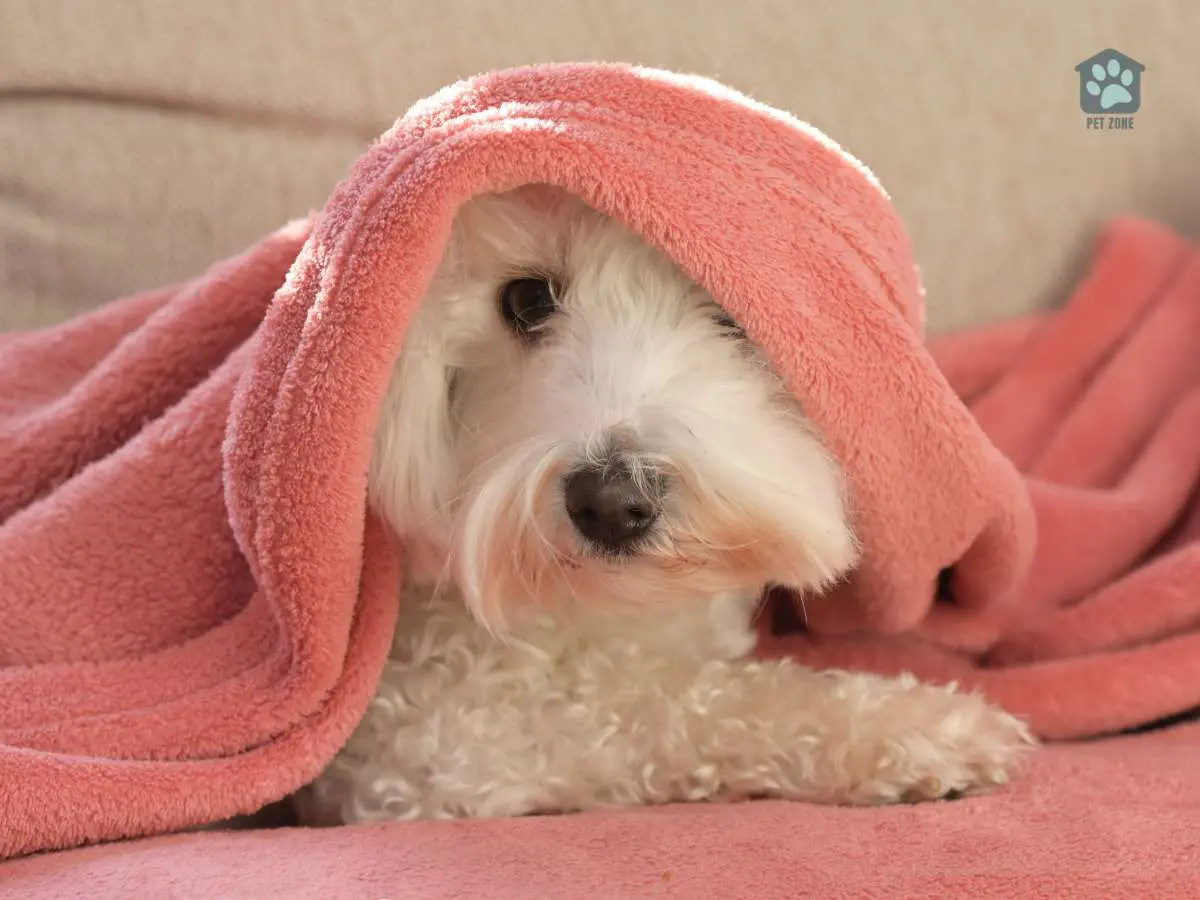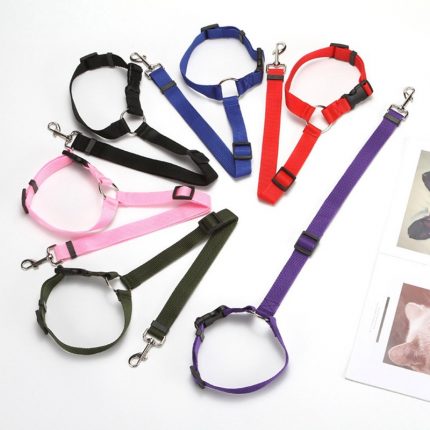Why Does My Dog Lick My Blanket?
Dogs have a plethora of behaviors that can sometimes leave us puzzled and curious about their motivations. One such behavior is when our furry companions incessantly lick our blankets. It may seem strange or even amusing at first, but there is often a deeper reason behind this seemingly innocent act. In this article, we will explore the possible explanations for why dogs engage in this behavior and what it may signify about their emotional and physical well-being.
Licking is a natural behavior for dogs, as it is their way of exploring and interacting with the world around them. From a young age, dogs use their tongues to investigate objects, people, and even other animals. So, when your dog licks your blanket, it is essentially their way of getting to know this foreign item that carries your scent. Dogs have an incredible sense of smell, and your blanket likely holds a multitude of scents that are familiar and comforting to them.
However, there may be more to this behavior than just curiosity. Dogs are known for their strong attachment to their human companions, and licking can be a way for them to seek comfort and reassurance. Your blanket, which carries your scent, becomes a source of solace for them when you are not around. It provides them with a sense of security and can help alleviate anxiety or stress.

Furthermore, licking can also be a self-soothing mechanism for dogs. Similar to how humans may engage in activities like nail-biting or hair-twirling when feeling anxious, dogs may resort to licking as a way to calm themselves down. The repetitive motion and the release of endorphins can have a soothing effect on their nervous system, helping them relax and feel more at ease.
It is important to note that excessive licking, particularly if it becomes obsessive or compulsive, may indicate an underlying issue that requires attention. Dogs may lick excessively due to medical conditions, such as allergies or skin irritations. If you notice any signs of discomfort, redness, or persistent licking, it is advisable to consult with a veterinarian to rule out any potential health concerns.
In conclusion, the act of dogs licking our blankets can be attributed to various factors. It serves as a means for them to explore, seek comfort, and self-soothe. Understanding the motivations behind this behavior can deepen our bond with our furry friends and ensure their well-being. So, the next time your dog indulges in licking your blanket, embrace it as a testament to their affection and reliance on you.
The Fascinating Reasons Behind Your Dog’s Blanket Licking Habit
Exploring the Scent and Familiarity
One of the primary reasons why dogs lick our blankets is their innate curiosity and desire to explore the world around them. Dogs have an incredibly powerful sense of smell, and your blanket carries a plethora of scents that are familiar to them. By licking the blanket, they are essentially gathering information about you, their beloved human, and the various scents that have accumulated on the fabric. It’s their way of connecting with you even when you’re not physically present.
Seeking Comfort and Security
Dogs are known for their strong attachment to their human companions. Your scent on the blanket provides them with a sense of comfort and security, especially when you’re away from home. Licking the blanket becomes a soothing ritual for them, reminiscent of your presence and the warmth of your companionship. It helps alleviate their anxiety and provides them with a source of solace in your absence.
Self-Soothing Mechanism
Licking is a natural behavior for dogs, and it can also serve as a self-soothing mechanism. Similar to how humans may engage in activities like nail-biting or hair-twirling when feeling anxious, dogs may resort to licking as a way to calm themselves down. The repetitive motion and the release of endorphins during licking can have a soothing effect on their nervous system. It helps them relax and cope with stressful situations or emotions.
Possible Health Concerns
While occasional blanket licking is generally harmless, excessive or obsessive licking may indicate an underlying health issue. Dogs may lick excessively due to allergies, skin irritations, or other medical conditions. If you notice any signs of discomfort, redness, or persistent licking, it is crucial to consult with a veterinarian. They can examine your dog and determine if there are any underlying health concerns that need to be addressed.
Conclusions
In conclusion, if you’re curious about “Why Does My Dog Lick My Blanket” and other quirky behaviors your furry friend exhibits, exploring comprehensive resources can provide you with insights into their fascinating world. For an in-depth understanding of this behavior, visit geepets.com, where you’ll find a wealth of information on canine habits, health, and care tips tailored to curious pet owners. Additionally, for further reading and to broaden your knowledge on dog behavior, checking out The American Kennel Club (AKC) can be incredibly helpful.
The AKC offers a plethora of articles, expert advice, and answers to common questions about dog care, training, and psychology, making it a valuable out resource for any dog owner looking to understand their pet better.

Practical Recommendations for Dealing with Your Dog’s Blanket Licking
1. Provide Alternative Chewing Options
If you notice that your dog is excessively licking your blanket, it may be helpful to redirect their behavior towards more appropriate outlets. Provide them with a variety of chew toys and interactive puzzle toys that can keep them engaged and mentally stimulated. This will not only distract them from licking the blanket but also satisfy their natural urge to chew.
2. Establish a Consistent Routine
Dogs thrive on routine, and having a consistent schedule can help alleviate anxiety and stress. Make sure your dog receives regular exercise, mental stimulation, and affectionate attention. Engage them in daily play sessions, take them for walks, and provide them with ample opportunities for socialization. A well-exercised and mentally stimulated dog is less likely to resort to blanket licking as a means of self-soothing.
3. Create a Calming Environment
Creating a calm and relaxing environment for your dog is essential, especially if you’ve found yourself pondering, “Why does my dog lick my blanket?” This behavior can sometimes be a sign they’re seeking comfort or dealing with anxiety. By providing them with a designated space where they feel safe and secure, you’re addressing the underlying needs that might lead to questions like, “Why does my dog lick my blanket?” Set up a comfortable bed or crate with their favorite toys and blankets, which not only caters to their comfort but might also help in understanding the behavior behind “Why does my dog lick my blanket?”
Incorporating calming aids into this environment can further enhance the serenity of their personal space. Pheromone diffusers mimic the natural pheromones dogs sense from their mother, providing a sense of security and well-being that can alleviate the concerns behind “Why does my dog lick my blanket?” Soothing music, specifically composed for canine ears, can also play a pivotal role in creating a peaceful atmosphere, potentially reducing the frequency of your dog engaging in behaviors like licking your blanket, as it addresses the stress or anxiety they might be experiencing.
Remember, the goal is to make your dog feel as comfortable and secure as possible, diminishing the need to seek comfort in ways that make you wonder, “Why does my dog lick my blanket?” Through these efforts, you’re not only creating a haven for your pet but also possibly reducing the occurrence of behaviors that stem from anxiety or discomfort.
4. Address Underlying Medical Issues
If you’re wondering, “Why does my dog lick my blanket?” and notice that your dog’s blanket licking persists or becomes excessive, it is crucial to consult with a veterinarian. They can examine your dog to determine if there are any underlying medical conditions contributing to the behavior, which might be at the heart of your question: “Why does my dog lick my blanket?” Allergies, skin irritations, or gastrointestinal issues may be causing discomfort, leading to increased licking.
This could be a significant factor if you’re repeatedly asking yourself, “Why does my dog lick my blanket?” Treating the underlying cause will not only alleviate their discomfort but also reduce the urge to lick excessively, providing an answer to the pressing question, “Why does my dog lick my blanket?” Addressing these concerns is essential for any pet owner puzzled by the thought, “Why does my dog lick my blanket?” and looking to ensure the health and comfort of their furry friend.
5. Seek Professional Help if Needed
If you’re pondering, “Why does my dog lick my blanket?” and this habit turns obsessive or compulsive, it may be beneficial to seek the assistance of a professional dog trainer or animal behaviorist. When the question “Why does my dog lick my blanket?” leads you to observe a pattern that seems beyond simple enjoyment, a professional can assess your dog’s behavior, identify any underlying triggers behind “Why does my dog lick my blanket?”, and provide you with tailored training techniques to modify their behavior effectively.

For those struggling with the question “Why does my dog lick my blanket?” and are concerned about it becoming a problematic behavior, professional guidance can be invaluable in addressing and managing “Why does my dog lick my blanket?” with strategic interventions.
6. Practice Positive Reinforcement
Positive reinforcement is a powerful tool in shaping your dog’s behavior. Whenever your dog shows alternative behaviors to licking the blanket, such as playing with their toys or resting calmly, praise and reward them. This will help reinforce those desirable behaviors and discourage the blanket licking habit. Remember to be patient and consistent in your training efforts.
Incorporating these practical recommendations into your daily routine can help address your dog’s blanket licking habit and promote their overall well-being. Remember, understanding their motivations and providing appropriate outlets for their needs is key to maintaining a harmonious relationship with your furry companion.















